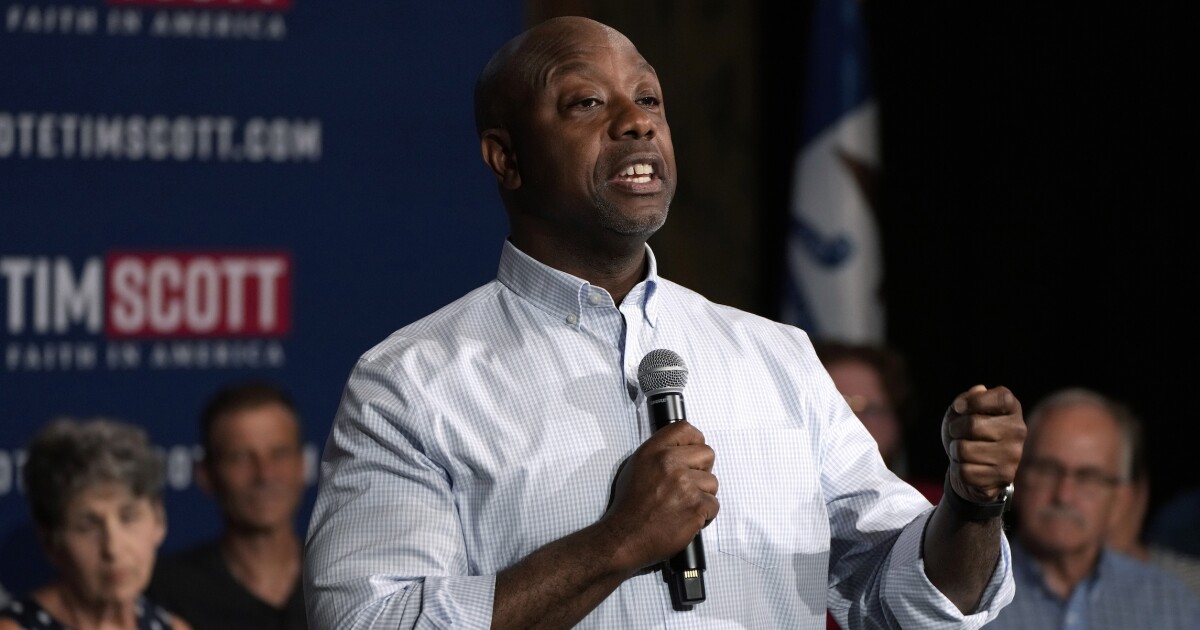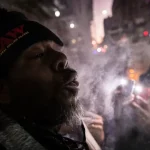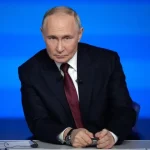

Sen. Tim Scott (R-SC) left Washington early this week to travel to the small city of Pella, Iowa, to greet caucusgoers as he runs for president.
The trip was just his latest to the Hawkeye State, which votes first in the GOP’s 2024 primary. He had been there two weekends earlier for the annual “Roast and Ride,” a barbecue and motorcycle parade put on by fellow Sen. Joni Ernst (R-IA).
BIDEN STEPS ONTO 2024 CAMPAIGN TRAIL IN TRUMP’S SHADOW
But this time, the Wednesday trip forced him to miss five votes in the Senate. He skipped two more on Thursday.
The votes were the first he’s missed since launching his campaign in May, but if history is any guide, they will be far from the last.
It’s not unusual for senators to skip town as they run for higher office — in fact, the top candidates in 2016 missed up to a third of their votes to compete.
But his absence presents a special challenge to Senate Republicans this Congress. The party has had remarkable success putting President Joe Biden on defense, torpedoing his nominees and forcing vetoes, all in a chamber Democrats control 51-49.
Those wins have a lot to do with defections by swing state Democrats like Sen. Joe Manchin (D-WV). But with the chamber so closely divided, they sometimes come down to basic attendance.
The Senate only voted to overturn Biden’s rule on trucking emissions in April, for example, because of a single absence — that of Sen. Dianne Feinstein (D-CA), who spent two months in her home state recovering from shingles.
Scott understands that and has committed to being in the Senate chamber when needed. Sen. John Thune (R-SD), the minority whip, told the Washington Examiner he and Scott are in “regular” contact.
“Well, he’s very good about informing us what his schedule is, and, you know, he’s running for national office,” he said. “So, we all get that, but, you know, there are votes where it matters. He’ll be here.”
It’s an assurance Scott has made to several of his colleagues in recent weeks.
“He has expressed to me and other Republican senators that he’s never more than a short plane ride away from the Senate should he be the decisive vote on any consequential matter,” Sen. Tom Cotton (R-AR) told the Washington Examiner.
But Scott is already facing the challenge of balancing long hours at the Capitol with the grueling job audition that is a presidential run.
He feared he might miss a vote to repeal the president’s new rule on pistol braces, according to Sen. John Kennedy (R-LA), the resolution’s sponsor. But he and Scott simply agreed to push the measure, which is guaranteed a vote under the Congressional Review Act, to next week.
“Tim’s going to be back for my CRA,” Kennedy told the Washington Examiner. “I had given some thought to doing it this week, and he — Tim, you know, he’s so conscientious that he said, ‘Oh my gosh, I might miss your vote,’ and I said, ‘Well, you know, I can move my vote.’”
Scott won’t always have that flexibility, however.
Republicans have had some success driving the floor schedule using “disapproval resolutions” like the one Kennedy expects will get a vote this coming Wednesday.
But Senate Majority Leader Chuck Schumer (D-NY) still controls the floor and can plan Senate votes at inopportune times for Scott.
Sen. Mike Rounds (R-SD), who, along with Thune, has endorsed Scott’s presidential run, sees the burden as manageable given that votes are scheduled in advance. But he and other Republicans acknowledge it will be a hurdle for leadership at times.
“Does it make managing it a little bit more challenging? It does, but it’s expected that if you’re running for the presidency that we’ll give those folks a little more leniency,” Rounds said.
The sentiment is a common one among Senate Republicans the Washington Examiner spoke to. Although Scott is the only senator running for president this cycle, they say, he is hardly the first and should be given the latitude to miss votes when he needs to.
Sen. Mike Braun (R-IN) said that leeway is “especially” deserved given Scott has a good track record on votes, only missing 2% in the last Congress.
But the absences are nonetheless a challenge for Thune as minority whip, both in opposing controversial nominees and for the CRAs that Republicans continue to introduce.
His Democratic counterpart, Sen. Dick Durbin (D-IL), doubted Scott’s absence would keep Republicans from needling Biden and his regulatory agenda, but Durbin commiserated with the headache attendance problems can cause.
Feinstein is not the only Democrat whose absence was felt this year. Sen. John Fetterman (D-PA) missed weeks of votes to undergo treatment for depression.
Just last week, Democrats had to cancel a vote after Sen. Patty Murray (D-WA) came down with a sinus infection.
“At any given moment, you never know who’s missing. It changes every day, every week. I’ve been through this so many times,” Durbin told the Washington Examiner.
The prolonged absences helped Republicans get legislation through the upper chamber, including a rollback of Biden’s rule on endangered species. But Thune likely won’t find himself with quite the same frustrations since Scott can be called back anytime for a vote.
“It’s all timing,” Durbin added.
None of Scott’s missed votes this week changed the outcome for the Biden judges the Senate confirmed along party lines.
He did spare Vice President Kamala Harris from having to make several trips to the Capitol, however, to cast tiebreaking votes.
Republicans lump forcing tiebreakers in the “nice to have” category because it suggests to voters the nominees are partisan picks. But Cotton dismissed the impact of Scott’s absence as trivial.
“I would prefer that all of our presidential candidates be on the campaign trail, working their hardest to replace Kamala Harris and Joe Biden rather than trying to inconvenience Kamala Harris’s schedule,” he said.
For the most part, Scott’s absence from Washington will be felt on committees, in particular Banking, where he is the ranking Republican.
The senator was present to help lead the panel’s Tuesday hearing that featured testimony from the director of the Consumer Financial Protection Bureau. But his Republican colleagues expect he won’t be able to make them all as he campaigns for president.
CLICK HERE TO READ MORE FROM THE WASHINGTON EXAMINER
Scott is planning for the absences and has been in touch with Republicans on the committee to spread the workload.
“We talked several weeks ago about how we were going to coordinate so that if he wasn’t here for a Banking meeting and so forth, we would be helping out,” Rounds, a senior committee member, said. “That coordination is critical, and he’s thought way ahead on it.”





